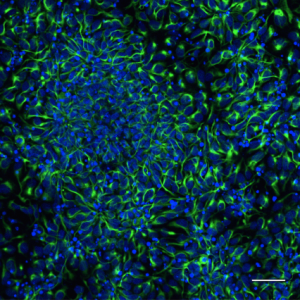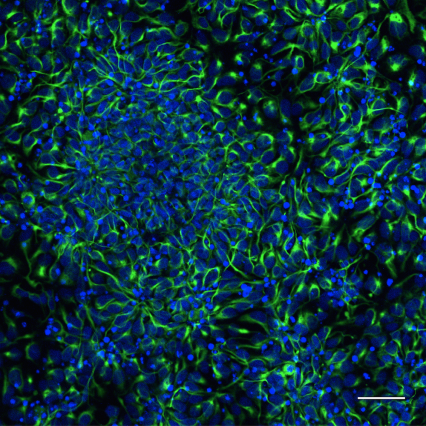
Human neuron progenitors express neural stem cell marker Nestin (green).
Images courtesy of Danielle Feldman, Sur laboratory, Picower Institute at MIT.
[Source: Picower Institute for Learning and Memory, October 16, 2015]
Taking advantage of genetic heterogeneity in autism and other neurodevelopmental disorders could lead to precision therapies.
Genetic research suggests that hundreds of genes are likely risk factors for neurodevelopmental disorders such as autism. This heterogeneity presents both challenges and opportunities when it comes to developing effective treatments for these diseases. The next generation of research must focus on the neural circuits underlying behavioral symptoms, the cell types in these circuits, and the signaling pathways that connect the diverse genes that potentially cause disease.
In a new paper in the journal Science, Mriganka Sur, professor at the Picower Institute for Learning and Memory and MIT Department of Brain and Cognitive Sciences, and Mustafa Sahin of Boston Children’s Hospital explain why…
